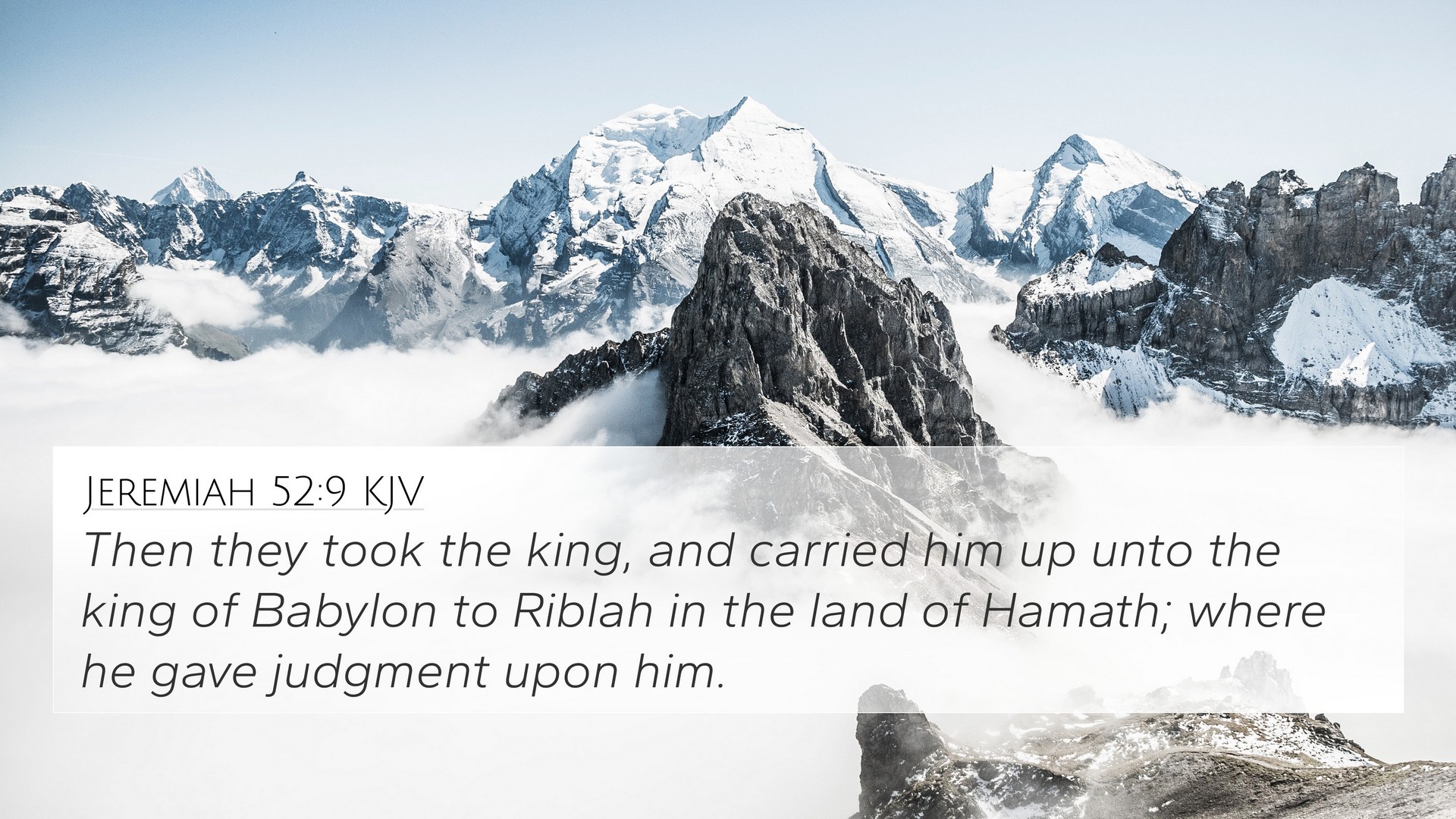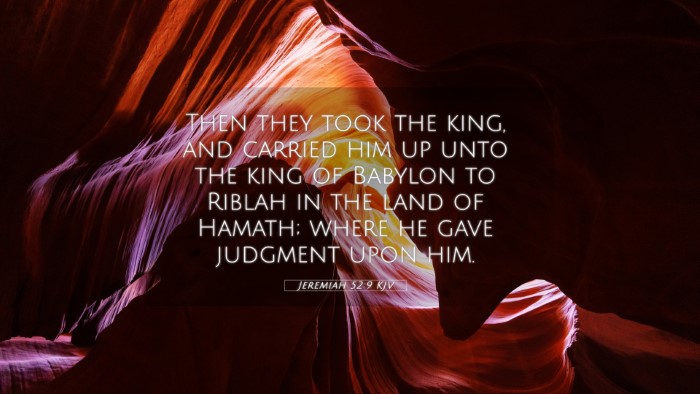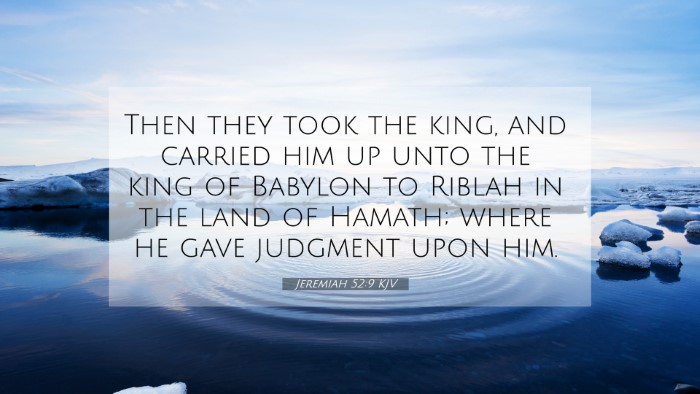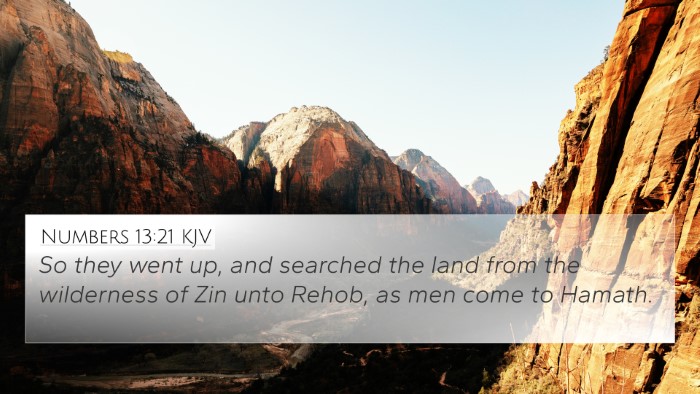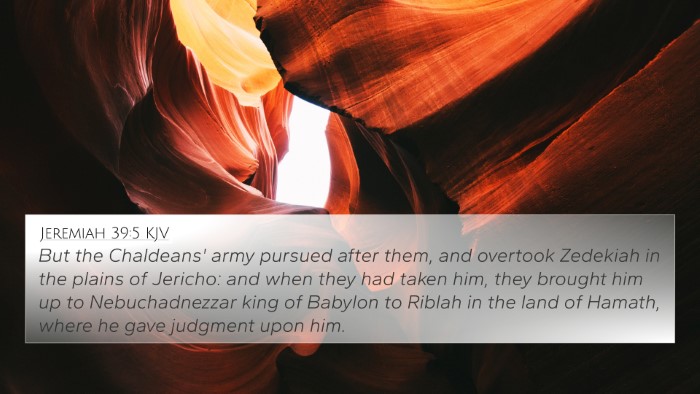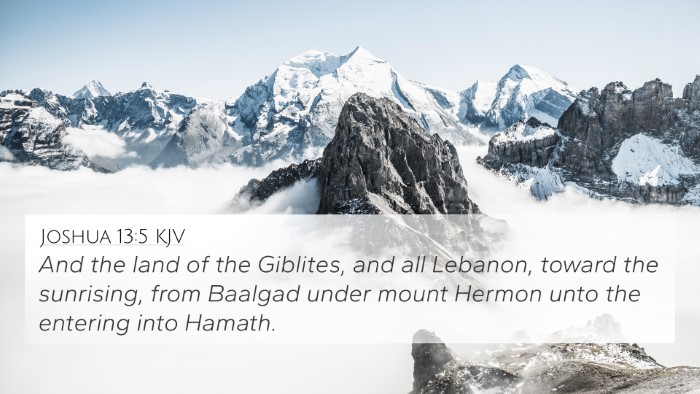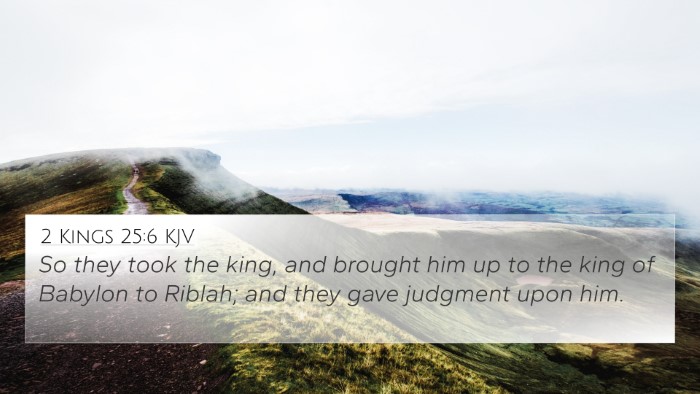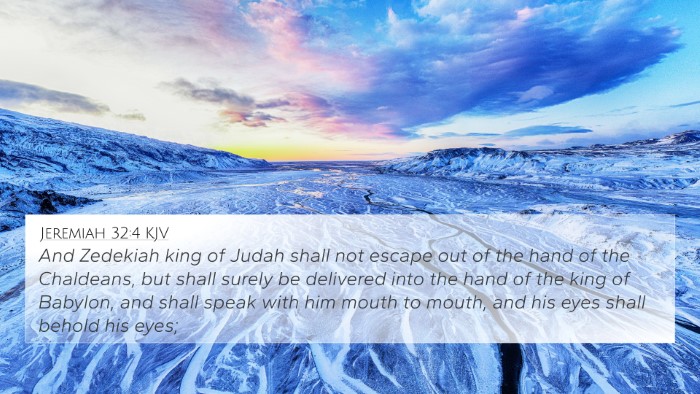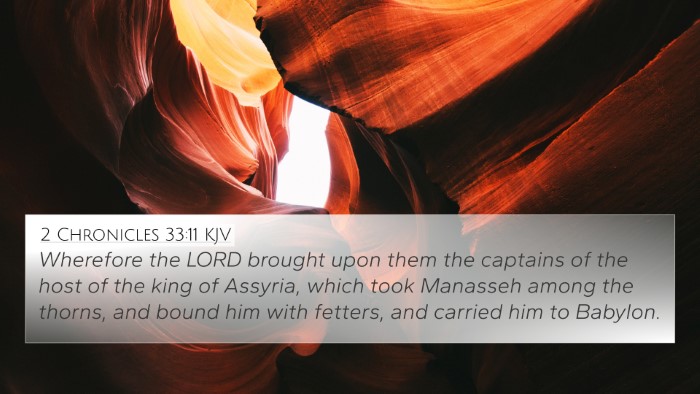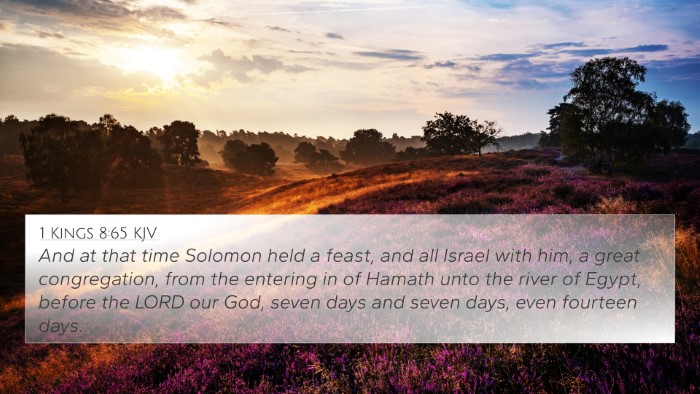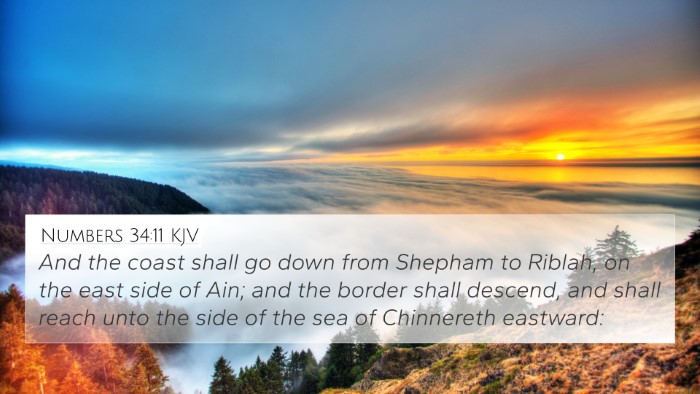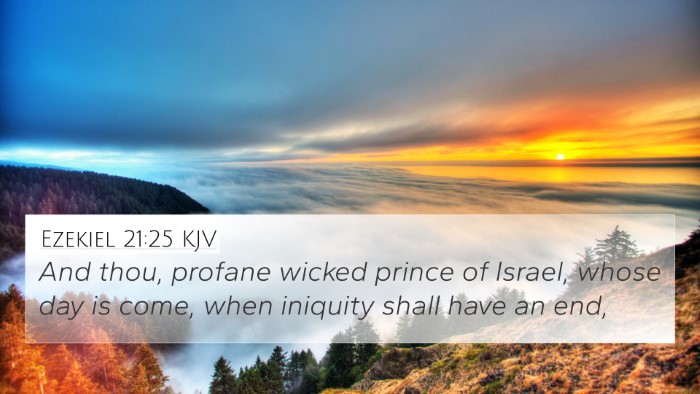Understanding Jeremiah 52:9
The Bible verse Jeremiah 52:9 states, "Then they took the king and brought him up to the king of Babylon to Riblah; and they gave judgment upon him." This verse encapsulates a pivotal moment in the historical narrative of Israel's exile and the judgment rendered upon Zedekiah, the last king of Judah.
Contextual Background
This verse occurs at the conclusion of the Book of Jeremiah, marking the fall of Jerusalem. The destruction of the city and its temple symbolizes the culmination of God’s judgment against Judah for persistent disobedience and idolatry. This judgment was prophesied throughout Jeremiah's ministry and was ultimately realized with the Babylonian siege.
Commentary Insights
-
Matthew Henry:
Henry emphasizes the fulfillment of prophecy and God's sovereignty in allowing Babylon to conquer Jerusalem. He reflects on the humiliation of Zedekiah, illustrating how leaders bear responsibility for their people's sins.
-
Albert Barnes:
Barnes explains the significance of Zedekiah's captivity as a demonstration of divine judgment. He draws parallels to other instances of judgment in scripture, indicating that Zedekiah’s fate serves as a warning against rebellion and turning away from God.
-
Adam Clarke:
Clarke notes the tragic end of Zedekiah's reign and the sorrow it reflects not only for the king but for the entire nation. He highlights the importance of repentance and obedience to God’s commandments as themes that resonate throughout the scriptures.
Key Themes
- Divine Judgment: The verse signifies God’s judgment on Judah for unfaithfulness.
- Leadership Responsibility: Zedekiah’s actions impacted the destiny of his people.
- Historical Context: The fall of Jerusalem aligns with prophetic warnings from earlier texts.
Cross-References
This verse is related to various other scriptures that deepen the understanding of its significance:
- 2 Kings 25:5-7: The account of the fall of Jerusalem and Zedekiah's capture.
- Jeremiah 39:5-7: Further detail on the fate of Zedekiah and the Babylonian conquest.
- Ezekiel 12:13: Prophecies regarding Zedekiah and the judgment upon Jerusalem.
- Isaiah 39:6-7: Prophecies predicting the Babylonian exile.
- Lamentations 2:9: Reflection on the desolation of Jerusalem after the siege.
- Daniel 1:1-2: Context regarding the Babylonian Empire's dominance over Judah.
- Habakkuk 1:6: Mention of the Chaldeans (Babylonians) as instruments of God’s wrath.
- Zechariah 7:12: The call to heed God's word which was disregarded.
- Romans 11:22: A New Testament reference on the severity and goodness of God—reminding us of God's judgment.
Thematic Connections
The themes in Jeremiah 52:9 resonate throughout the Bible. Cross-referencing these themes can enhance understanding of God’s overarching plan:
- Judgment and Redemption: The narrative of judgment in the Old Testament finds parallels in New Testament discussions of sin and salvation.
- Faithfulness in Leadership: Biblical leaders are recurrently examined in terms of their faithfulness to God's covenant.
- Historical Consequences: Actions taken by historical figures in the Bible often serve as lessons for contemporary faith practices.
Conclusion
In summary, Jeremiah 52:9 serves as a critical verse reflecting the themes of divine judgment, the responsibility of leadership, and the fulfillment of God’s promises. Understanding this verse through cross-referencing helps illuminate its message and warn against the consequences of turning away from God. Through tools like a Bible concordance and cross-reference guide, one can discover even deeper connections across the scriptures that highlight thematic parallels, enhancing comprehension and faith.
